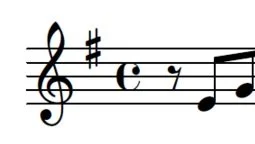Rapid City financial advisor Rick Kahler: the jazz of money -- improvising past financial sour notes.
Most people want financial certainty. I know I do. We like the idea of mapping out a plan and following it perfectly, step by step, until we reach some picture-perfect retirement. But this is simply not how real life works. Instead, as financial therapist Derek Hagen recently pointed out in his Meaningful Money blog, “Life, much like an improv performance, rarely sticks to our carefully crafted plans.”
Even the best financial plans sometimes hit an unexpected sour note: an investment seemingly doesn’t work out, an emergency expense appears to throw off a budget, or an impulsive splurge leaves us with a case of buyer’s remorse. When this happens, we need to improvise as we respond to the financial twists and turns.
While we do, we might keep in mind a quote from jazz great Miles Davis, who was widely known for his improvisational skills. “It’s not the note you play that’s the wrong note — it’s the note you play afterwards that makes it right or wrong.”
Think about your own financial history. Almost certainly you, like most of us, have had harsh financial surprises. You have probably made more than one financial decision that, in hindsight, felt like the wrong note. Some people react to these surprises by trying to force the music back onto the page, clinging to their original plan even when reality has shifted. Others freeze, convinced they’ve ruined everything.
Neither response leads to financial well-being. Instead, the best approach is to adapt. Acknowledge the unexpected expense or decision, reassess where you are, and make the next best move. Financial well-being is not about never making mistakes, it’s about learning how to recover and blend mistakes harmoniously into the larger whole.
Jazz musicians typically don’t play alone. They listen to each other, responding in real time to what’s happening around them. In the same way, you don’t make your financial decisions in isolation.
Inside all of us is what I call an Internal Financial System™, a mix of different voices and beliefs about money that we’ve picked up throughout our lives. One part of you might be a Free-Spirited Spender, urging you to enjoy life and worry about the details later. Another part might be a Scarcity Protector, convinced that spending anything is dangerous. Maybe you have a Dreamer who fantasizes about financial success without a concrete plan, and a Worried Critic who never thinks you’re doing enough.
Instead of letting any one of these voices take over, financial improvisation means you step in, listen to their concerns and perspectives, and then decide on the next note to play.
Skilled improvisers don’t reject what has already happened or waste time in blame or argument. Instead, they build on whatever came before. In improv comedy, there’s a principle called “Yes, and.”
If your scene partner says, “We’re on a spaceship headed to Mars,” you don’t respond with, “No, that’s stupid.” You roll with it: “Yes, and it’s the candy company we’re heading to, not the planet.”
The same concept is useful with financial missteps. If you overspent last month, you don’t beat yourself up and give up on budgeting altogether. You acknowledge it: Yes, that happened. Then you decide what to do next: And now, I’ll adjust my spending for the coming weeks.
Financial well-being isn’t about trying to eliminate uncertainty. It is based on developing the ability to respond with confidence and creativity.
Next time you make a financial mistake, take a deep breath and remember Miles Davis. A single financial sour note does not define the whole song as a musical disaster.
What matters is the note you play next.
Rick Kahler, CFP, is a fee-only financial planner and financial therapist with a nationwide practice, Kahler Financial Group, based in Rapid City. His co-authored books include “Coupleship Inc.” and “The Financial Wisdom of Ebenezer Scrooge.”
Photo: public domain, wikimedia commons







